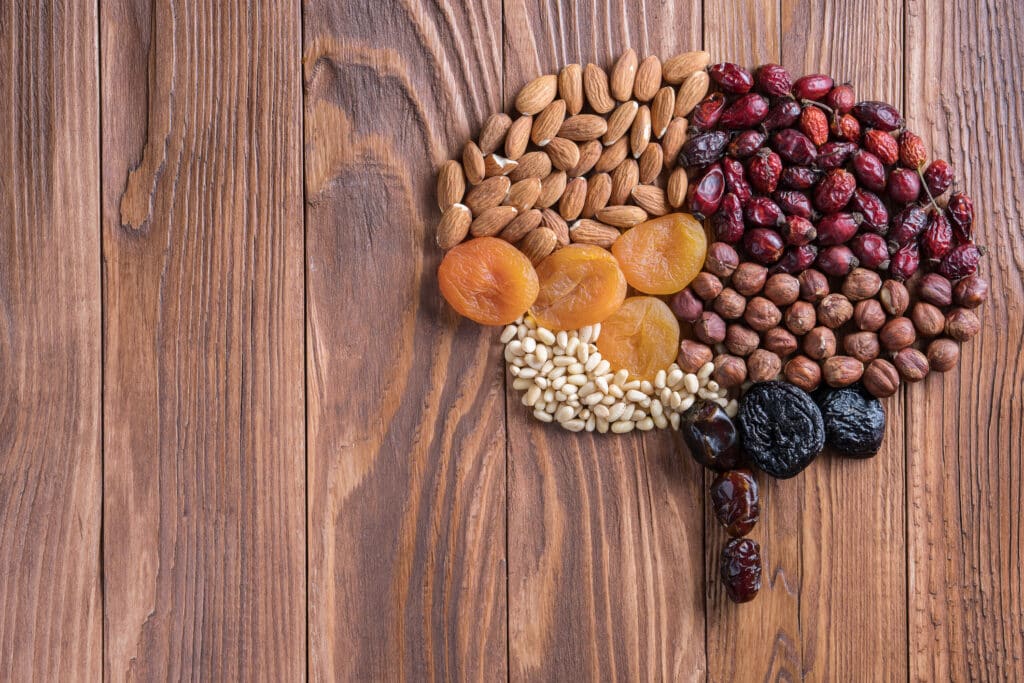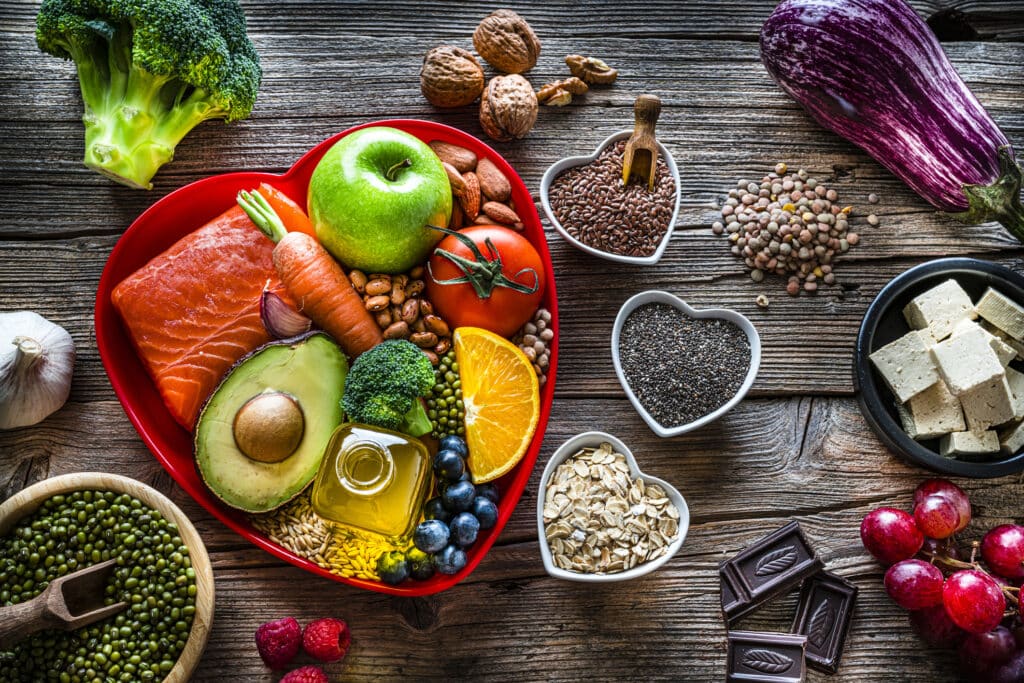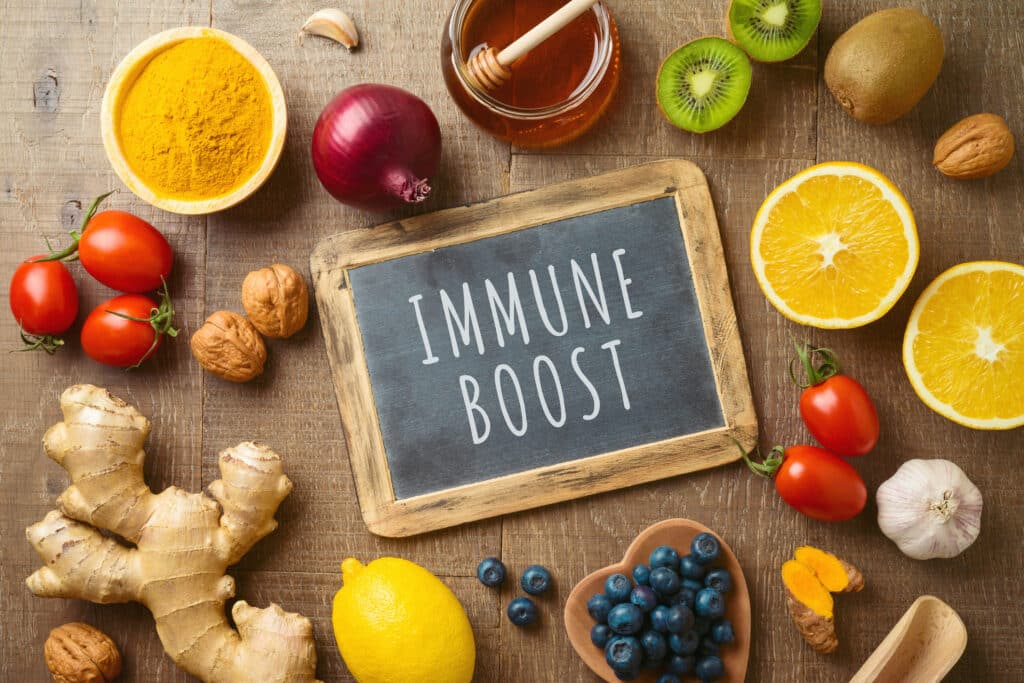For many people, a new calendar year typically ushers in a renewed commitment to health and wellness, and that first step toward a “new year, new you” often starts on the plate.
While some of us may be looking to make changes to lose weight, doctors and dietitians remind us that nutritious eating benefits our overall health, not just our waistlines.
”There’s no cure-all when it comes to nutrition, but having the right nutrients can go a long way when it comes to reducing the risk of hypertension, heart disease, colds, the flu, and possibly even dementia,” says Lisa Maehara, DO, family medicine specialist on the medical staff at Methodist Southlake Medical Center. “We can either get it from the foods we eat or supplements.“

EAT THE RAINBOW
Overhauling bad habits and establishing healthy ones can be overwhelming, Dr. Maehara says, so starting with small, manageable steps will be more effective in the long run. Anyone looking to make a dietary change will have an easier time incorporating more nutritious foods into meals than cutting out entire food groups altogether.
A general rule touted by nutritionists is to “eat the rainbow,” which boils down to trying a range of colorful fruits and vegetables since each offers specific nutrients that nourish the body.
“Eating a well-balanced diet will give you nutritional support,” Dr. Maehara says. “It’ll help your heart health, brain health, and everything that we’re talking about here. That’s so much easier than sticking with a specific restrictive diet.”
Here are some of the best sources of vitamins and minerals that she and other experts suggest for a healthy brain, heart, and immune system.

BRAIN BOOST
There’s a reason why Mom and Dad insisted on serving leafy greens at dinnertime: Vegetables like spinach, kale, and collard greens have been linked to better cognition.
“Green, leafy vegetables are great,” Dr. Maehara says. “They’re a good source of vitamin K, which is important for brain function.”
There are also some studies that suggest vitamins E and D play a minor role in slowing dementia or cognitive decline.
“Vitamin E might have a modest effect in slowing Alzheimer’s disease for those who have already been diagnosed,” Dr. Maehara adds. “And there is some slight evidence that vitamin D deficiency is associated with cognitive impairment in older adults.”
While dietary experts suggest trying plant-based oils, nuts, seeds, fruits, and vegetables for vitamin E, getting enough vitamin D from diet alone can be trickier. If you can’t drink milk or eat dairy, Dr. Maehara suggests turning to the sunshine vitamin’s namesake: UV rays.
“Supplements are an option, but it’s not regulated, and there is such a thing as vitamin toxicity,” she says. “It’s just better and more nutritious to get them from whole foods.”
Omega-3 fatty acids are another great nutrient for better brain function. Research suggests that omega-3 fatty acids can help improve learning, memory, and cognitive well-being. Avocado, almonds, walnuts, salmon, and olive oil are excellent sources of healthy fat.

HEART HEALTH
Heart disease is the leading cause of death in the U.S., and millions of people struggle with high blood pressure or cholesterol, according to the Centers for Disease Control and Prevention (CDC). While some causes are beyond our control, one tried-and-true method of reducing our risk is through diet.
The American Heart Association recommends limiting the amount of saturated fats you eat — namely butter, cheese, red meat, and other animal-based foods — because they can raise your level of low-density lipoproteins (LDL), or “bad” cholesterol. In contrast, eating plant-based foods has several heart-healthy benefits, Dr. Maehara says.
“Foods with certain soluble fibers can actually reduce your LDL and total cholesterol levels,” she explains. “Those include pinto and black beans, lentils, and nuts.”
High-fiber foods slow gastric emptying, make you feel full more quickly, inhibit cholesterol production in the liver, and cause more cholesterol and bile salts to pass through your system. The only caveat, Dr. Maehara adds, is for patients diagnosed with certain gastrointestinal disorders. This type of diet would not be suitable for people with Crohn’s disease or irritable bowel syndrome.
Plants also contain compounds called sterols and stanols, which can block the absorption of cholesterol.
“There are naturally occurring sterols and stanols in nuts, legumes, whole grains, fruits, vegetables, and plant oils,” Dr. Maehara says.
And just as they help boost brain function, omega-3 fatty acids also provide cardiovascular benefits by helping lower blood pressure. All the data, Dr. Maehara says, point to a specific diet.
“The Mediterranean diet is the only one that has observationally been determined as reducing cardiovascular disease risk,” Dr. Maehara says. “But others that have an effect on imbalanced cholesterol are the DASH diet, vegetarianism, and a low-carb lifestyle.”

IMMUNE SUPPORT
Good nutrition alone can’t ward off viruses and other infections, but there are vitamins and minerals that can boost the immune system and strengthen our bodies.
Vitamin C, found in most citrus fruits like oranges and grapefruits, is an antioxidant that stimulates a type of white blood cells to help fight off infections. Antioxidants are also said to help counter the damaging effects of free radicals and improve recovery times for fatigued athletes, Dr. Maehara says.
“Tart cherry juice is becoming popular among endurance athletes,” she adds.
On top of strengthening your bones and aiding brain function, vitamin D is also essential for fighting off viruses and bacteria, the CDC says. There’s also evidence supporting the link between vitamin D deficiencies and various immune-related disorders, including autoimmune diseases.






